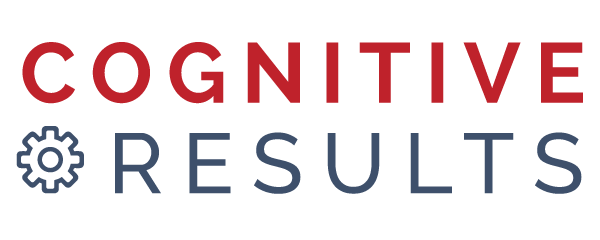Information: RCMP Online Entrance Assessment
Are you ready to embark on a rewarding career in law enforcement but feel overwhelmed by the daunting RCMP Online Entrance Assessment? At Cognitive Results, we specialize in turning your aspirations into reality with our comprehensive RCMP Online Entrance Assessment Program. Designed to address the academic aspect of the RCMP journey, our program provides the personalized coaching, practice tests, and study materials you need to succeed.
Discover how our proven strategies and expert guidance can transform your preparation and set you on the path to success in RCMP law enforcement. Read on to learn more about how Cognitive Results can be your ultimate partner in this crucial step towards your future career.
Latest Testimonials:
"(Police Tests) Program is worth way more than for what it is priced at. The material is super helpful and the practice is very, very in depth and will get you accustomed to how the test feels. I suggest you do timed testing to see if you are working at a good pace. I scored 87% on my ETHOS and only did so due to the great material that was available to me as well as my hard work. Work hard and use this material and you will do amazing." June 2, 2025
"The psych interview was exactly what I expected after our coaching. I'm in backgrounds now with XXX. Thank you Gillian." May 26, 2025
"I’m happy to share that I received my OTEE test results — and I passed with a great score! The study materials, especially the timed practice tests, were incredibly helpful and definitely made a difference in my performance." May 25, 2025
"Thank you so much for all your help and support throughout the process — I truly appreciate it! I completed the CBSA OTEE test last week, and I wanted to let you know that the material you provided was incredibly helpful. It gave me the confidence I needed to go in prepared, so thank you again for that." May 14, 2025
"I passed everything, the XXX LFI and the blended interview, and now I'm moving on to the psych and the in-person psych next week. Thank you for the coaching! You made the difference." May 14, 2025
"Hi Gillian, I have good news! I got the psych results and I was successful!!! Thanks again for all the help and wisdom!" May 11, 2025
HIRED! "I used Cognitive Results for preparation in my police hiring process. All the material for ETHOS was very helpful in order to prepare for the exam. Gillian was an amazing instructor her feedback was very genuine and provided great helpful tips. Her feedback was very informative. I highly recommend using Cognitive Results if you want to succeed in your police application process." April 19, 2025
"Hi Gillian, I am a returning client that has used this service for years. Thanks to this program I passed the written test for XXX, was hired, and now I want to make a career change. I've passed the interview for XXX and now I'm waiting for the psych." April 8, 2025
"Thanks it went very well waiting on next steps. No surprises. Thank you so much. (Coaching client West coast service interview.)" March 20, 2025
"Hi Gillian, I wanted to thank you officially for all of your help through the XXX police process (West Coast service). The ETHOS program was so thorough and raised my confidence. I landed an interview that you helped me prepare for with your excellent coaching. The coaching helped me with my delivery and answers but, more importantly, got me thinking and talking in the right ways to project my accurate answers with confidence. I can't recommend you enough! Thank you so much!" March 12, 2025
"Hi Gillian, I have some great news to share. I was successful in the interview for CBSA and will be moving to the next steps of the selection process. I had my interview Friday and I found out today. Thank you again for all your teaching they were extremely informative. I also passed along your website to ... I will continue to pass along your site to anyone I meet that can utilize the information. I don’t know when I’ll be doing the psych part yet but I will be studying." March 5, 2025
HIRED! "Thank you for all of your help and support through this process! To recap I received my offer with XXX two weeks ago for the March intake at OPC. I know that all of the studying I did on your website has also prepared me for the next stage. Everything you teach is accurate and well worth the investment. I am glad I found you and got all of the guidance I needed along the way, including coaching. I will be recommending you in the future to other police applicants - you are the best!" February 16, 2025
RCMP Online Entrance Assessment Program
The RCMP Online Entrance Assessment takes 55 - 70 minutes to complete, with several timed portions. The RCMP Online Entrance Assessment includes the following six sections:
Section 1 - Workstyle Preference:
- Objective: Assess the candidate's personality traits and work-related preferences.
- Structure: The workstyle preference section includes questions that evaluate traits such as teamwork, leadership, stress tolerance, and adaptability. This part of the test helps determine if the candidate's personality and work preferences align with the demands of a policing career.
- Preparation with Cognitive Results: Reflect on personal traits and engage in self-assessment exercises to better understand and develop qualities crucial for law enforcement roles.
Section 2 - Language Comprehension:
- Objective: Assess the candidate's ability to understand and interpret written information.
- Structure: This section includes reading passages followed by questions that test comprehension, vocabulary, and the ability to draw inferences from the text. Candidates must demonstrate their understanding of main ideas, supporting details, and implied meanings.
- Preparation with Cognitive Results: Engage in targeted reading exercises and comprehension drills that mirror the RCMP test format, helping you build skills in interpreting and analyzing written information. Expand vocabulary through targeted practice exercises.
Section 3 - Numerical Skills:
- Objective: Evaluate the candidate's proficiency with basic arithmetic and numerical reasoning.
- Structure: Questions in this section cover a range of mathematical concepts, including addition, subtraction, multiplication, division, fractions, percentages, and problem-solving involving numerical data. Candidates are tested on their ability to perform calculations accurately and interpret numerical information.
- Preparation with Cognitive Results: Utilize practice tests and numerical problem-solving exercises to enhance your arithmetic and reasoning skills, focusing on speed and accuracy.
Section 4 - Spatial Skills:
- Objective: Measure the candidate's ability to visualize and manipulate objects in space.
- Structure: This section presents problems involving shapes, patterns, and spatial relationships. Candidates must demonstrate their ability to understand and solve problems related to spatial orientation and visualization.
- Preparation with Cognitive Results: Engage in spatial reasoning exercises designed to improve your ability to visualize and manipulate objects effectively.
Section 5 - Memory Quotient:
- Objective: Assess the candidate's ability to recall and use information.
- Structure: The memory section tests short-term and long-term memory through various exercises. Candidates might be asked to remember sequences of numbers, words, or visual patterns and recall them after a brief interval.
- Preparation with Cognitive Results: Participate in memory enhancement exercises and drills that focus on improving both short-term and long-term recall abilities.
Section 6a - Business Reasoning with Verbal Reasoning:
- Objective: Evaluate the candidate's ability to understand, analyze, and draw logical conclusions from written information.
- Structure: This section includes questions based on passages, where candidates must identify arguments, detect logical fallacies, and infer meanings. The focus is on assessing the candidate's critical thinking and reasoning skills with language.
- Preparation with Cognitive Results:Engage in critical reading and reasoning exercises to sharpen your ability to analyze and interpret complex texts.
Section 6b - Business Reasoning with Numerical Reasoning:
- Objective: Measure the candidate's ability to work with numerical data and solve quantitative problems.
- Structure: The numerical reasoning section involves interpreting data from tables, charts, and graphs, as well as solving word problems that require mathematical calculations. This assesses the candidate's ability to apply numerical information in practical situations.
- Preparation with Cognitive Results: Use data interpretation exercises and quantitative problem-solving tasks to build your proficiency in handling numerical information.

FAIL TO PREPARE ... PREPARE TO FAIL
Why Choose Cognitive Results? (Since 2005)
Up-to-Date Materials
Our programs are continuously updated to align with the latest testing standards, ensuring your preparation is always relevant and effective.
Complete Programs
From videos and quizzes to full practice exams, we offer everything you need in one place, streamlining your path to success.
Learning Tools
Our detailed teaching methods and practice tools are designed to simplify complex topics and maximize your understanding.
Top Success Rates
Thousands of clients have achieved their goals with our expert guidance. Let us help you join the growing list of successful candidates.
Ad-Free Platform
Focus on what matters without distractions. Our ad-free platform ensures a seamless and immersive learning experience.
Video Teaching
Engaging, expert-led video lessons break down concepts step-by-step, making learning accessible and enjoyable.
What does the RCMP Online Assessment Program include?
Comprehensive Test Preparation
Gain access to a wide array of tests covering all facets of your testing, ensuring thorough readiness.
Extensive Practice Tests with Solutions
Hone your skills with numerous practice tests, each complete with detailed solutions to facilitate learning.
Exclusive Proprietary Content
Benefit from expert-led instruction developed since 2005, offering insights and strategies you won't find elsewhere.
Unlimited Practice Opportunities
Practice as much as you like, with no restrictions on the number of attempts, allowing you to build confidence and proficiency.
In-Depth Video Courses
Engage with extensive video lessons tailored to specific topics, each accompanied by quizzes to reinforce your understanding.
Simulated Timed Tests and Flashcards
Experience realistic test conditions with timed assessments and reinforce your knowledge using flashcards.
